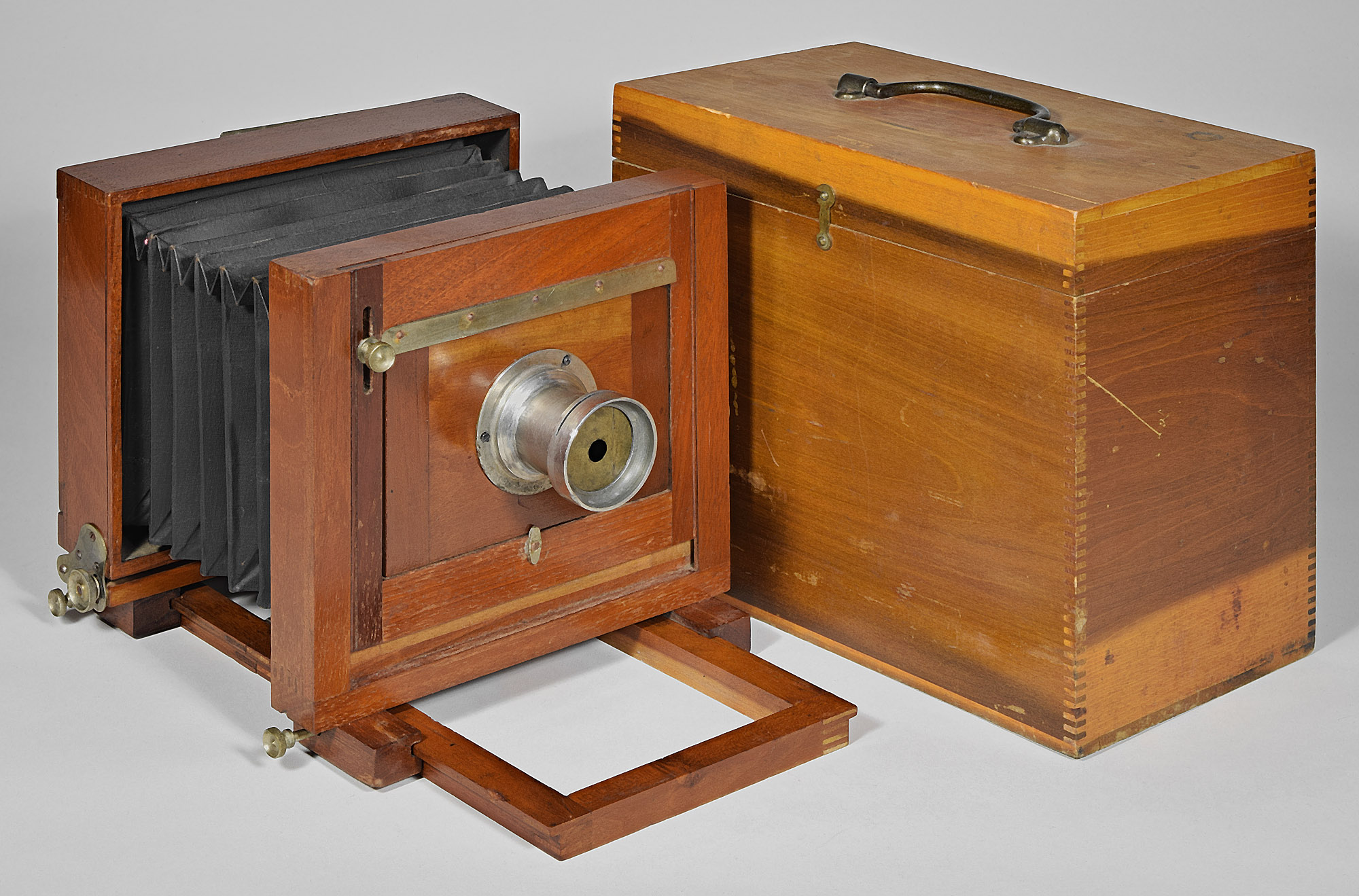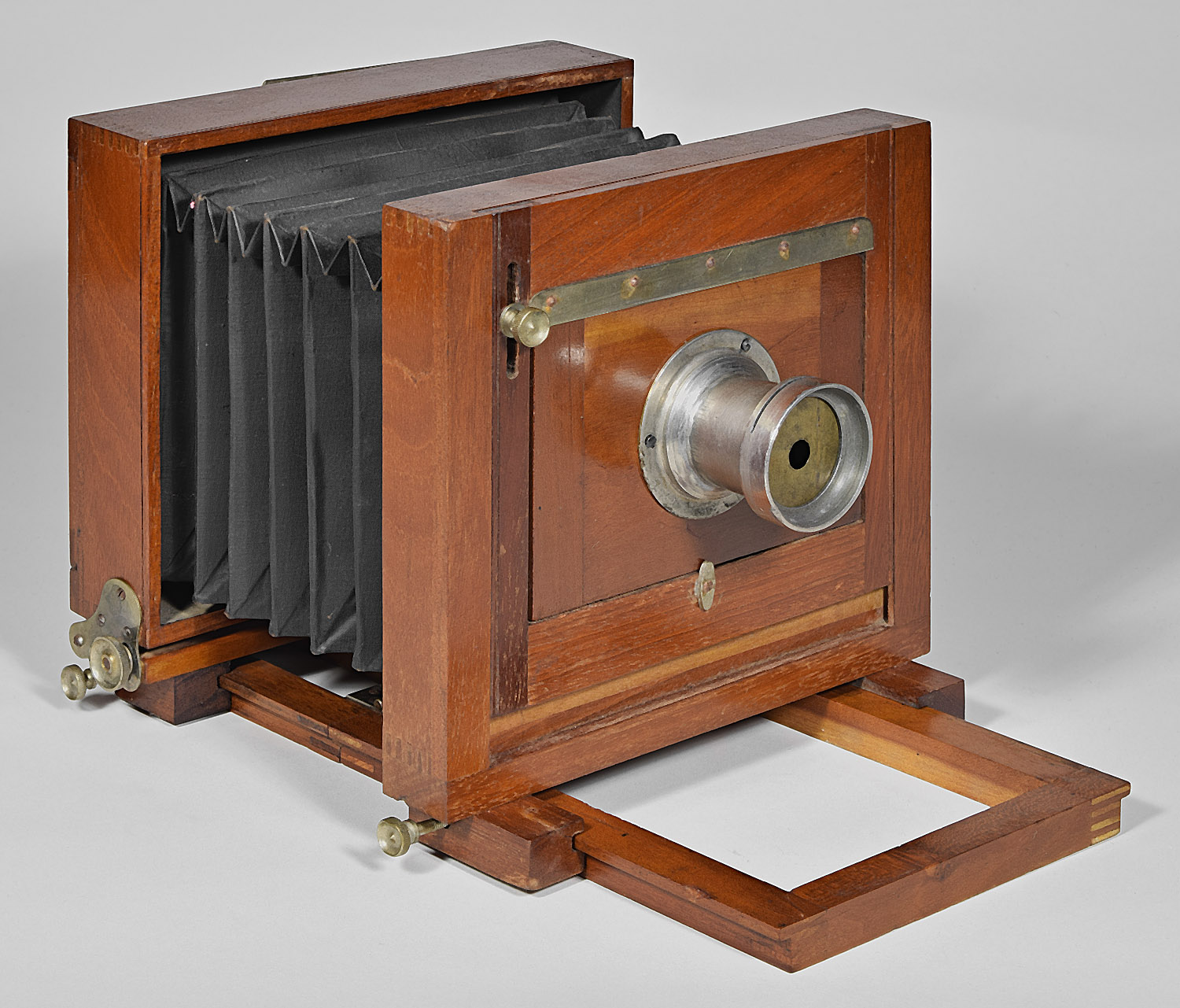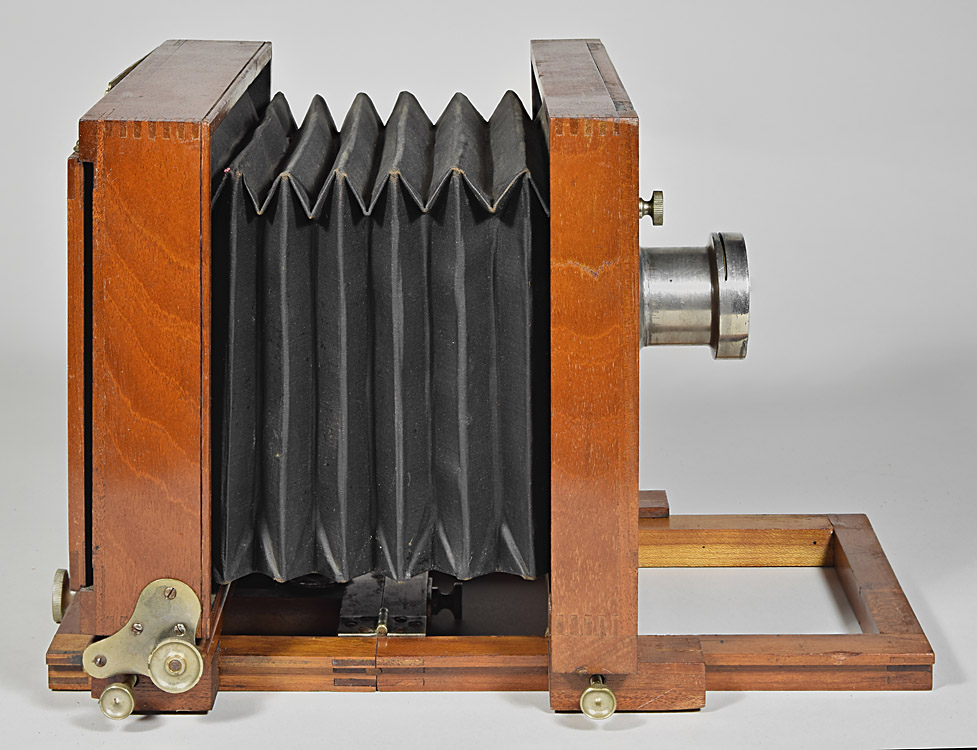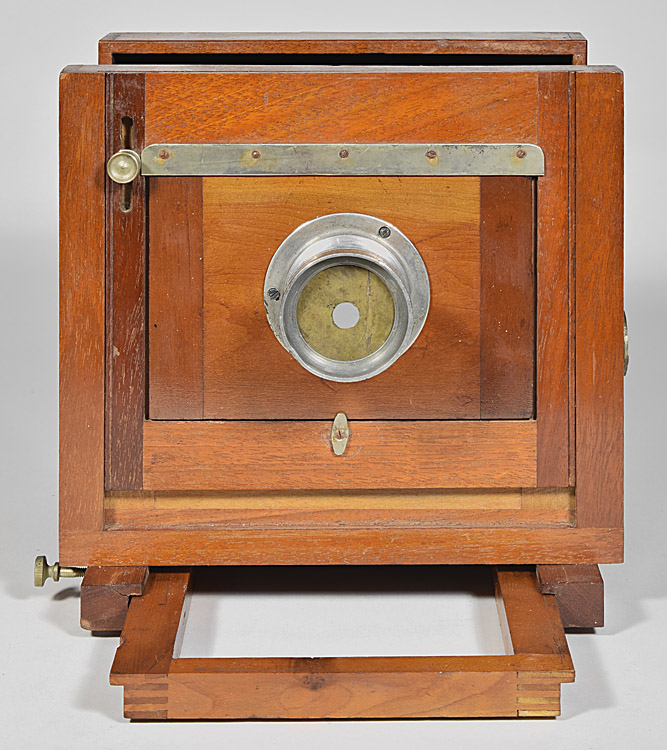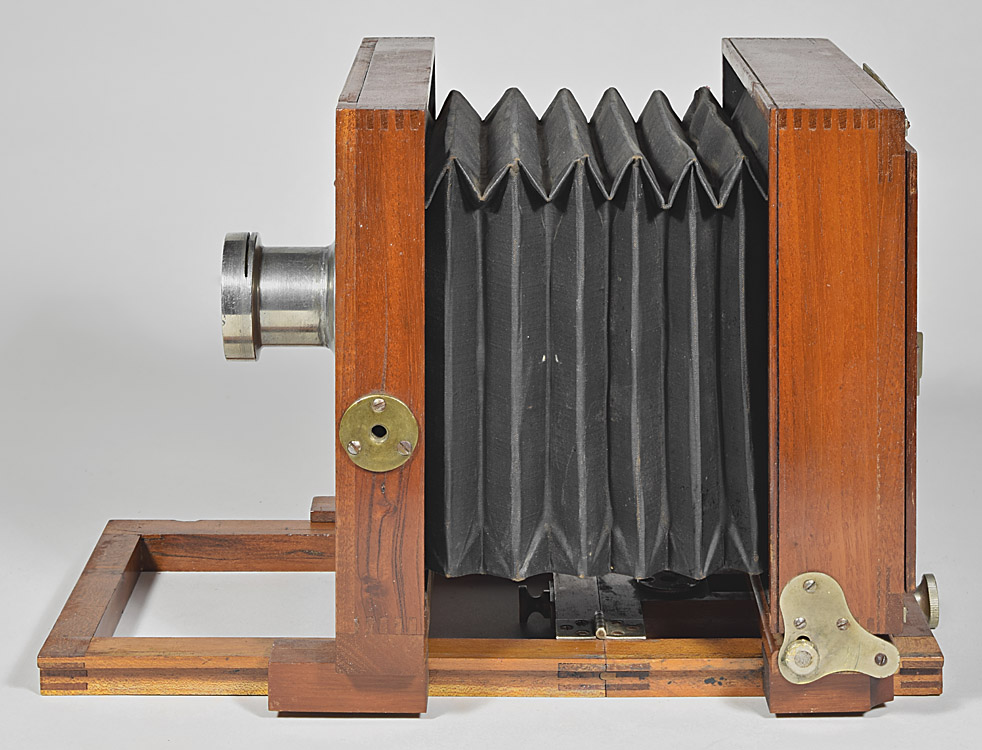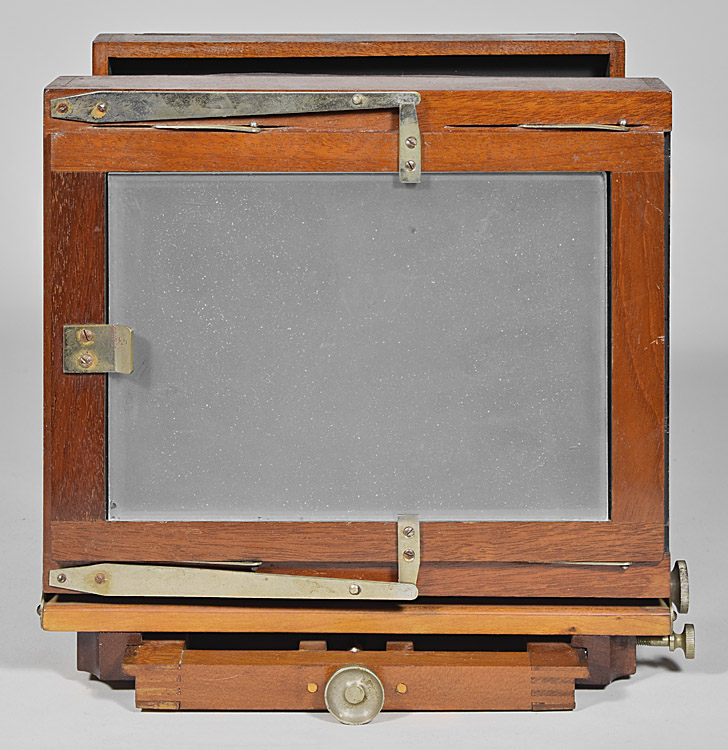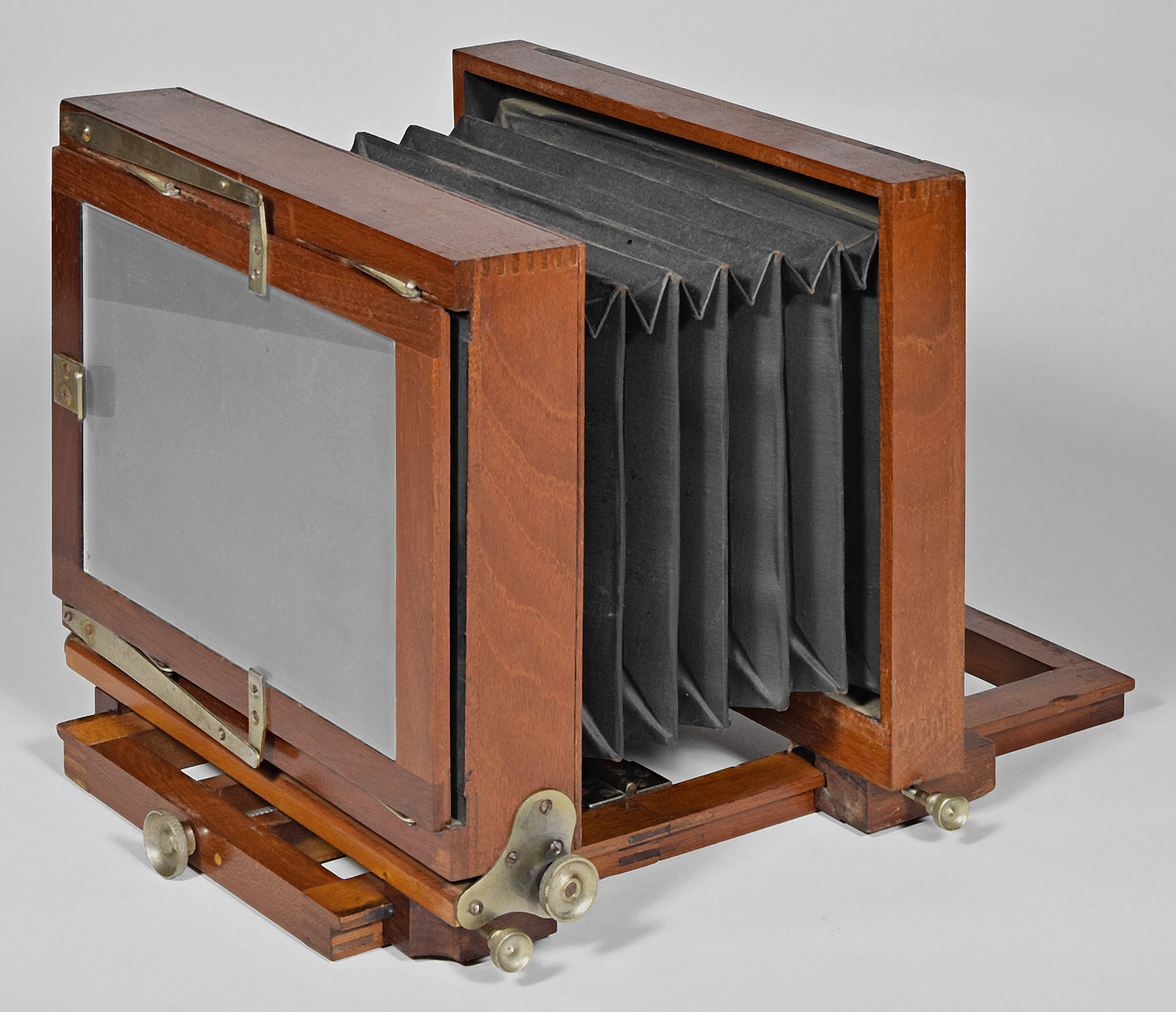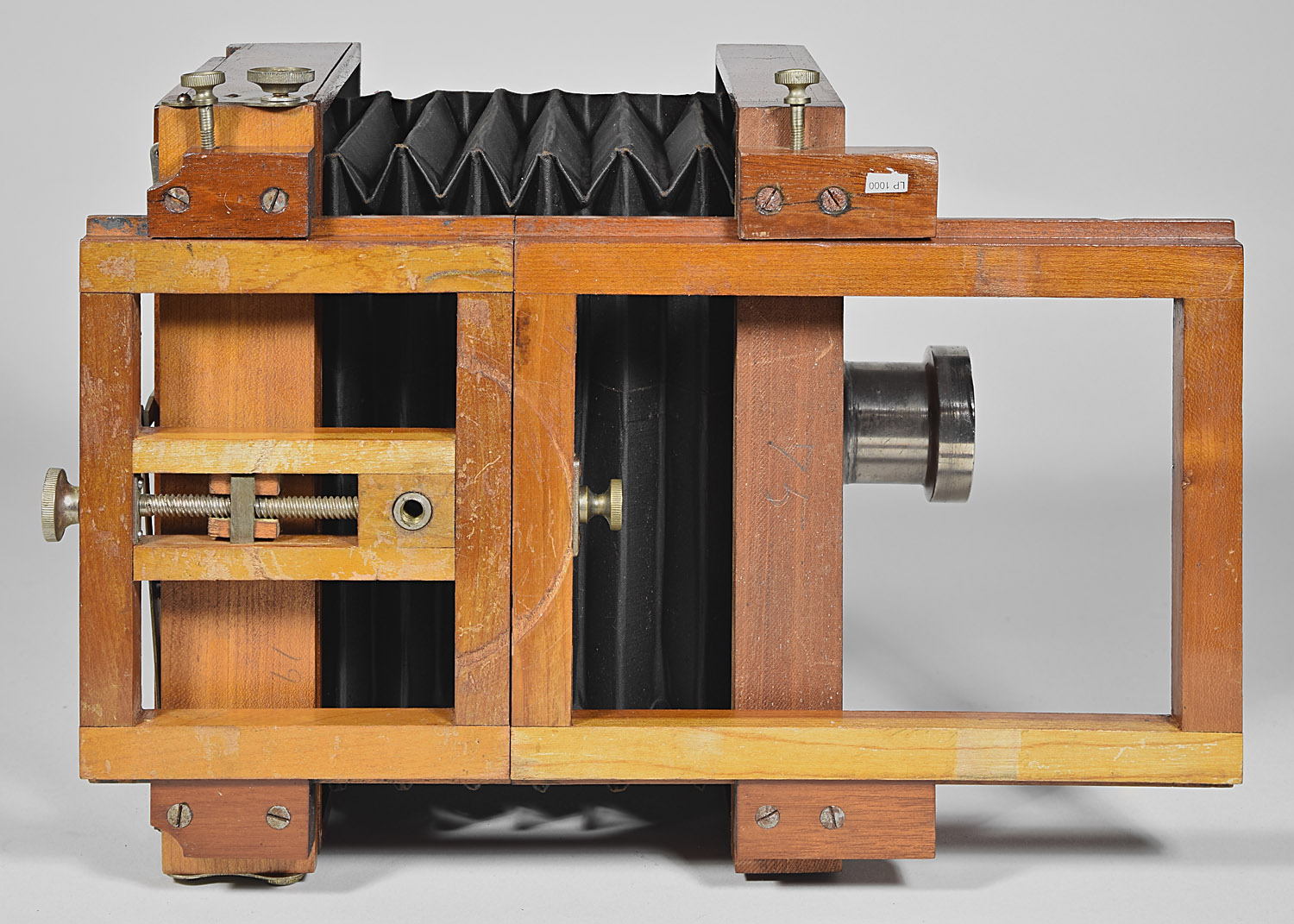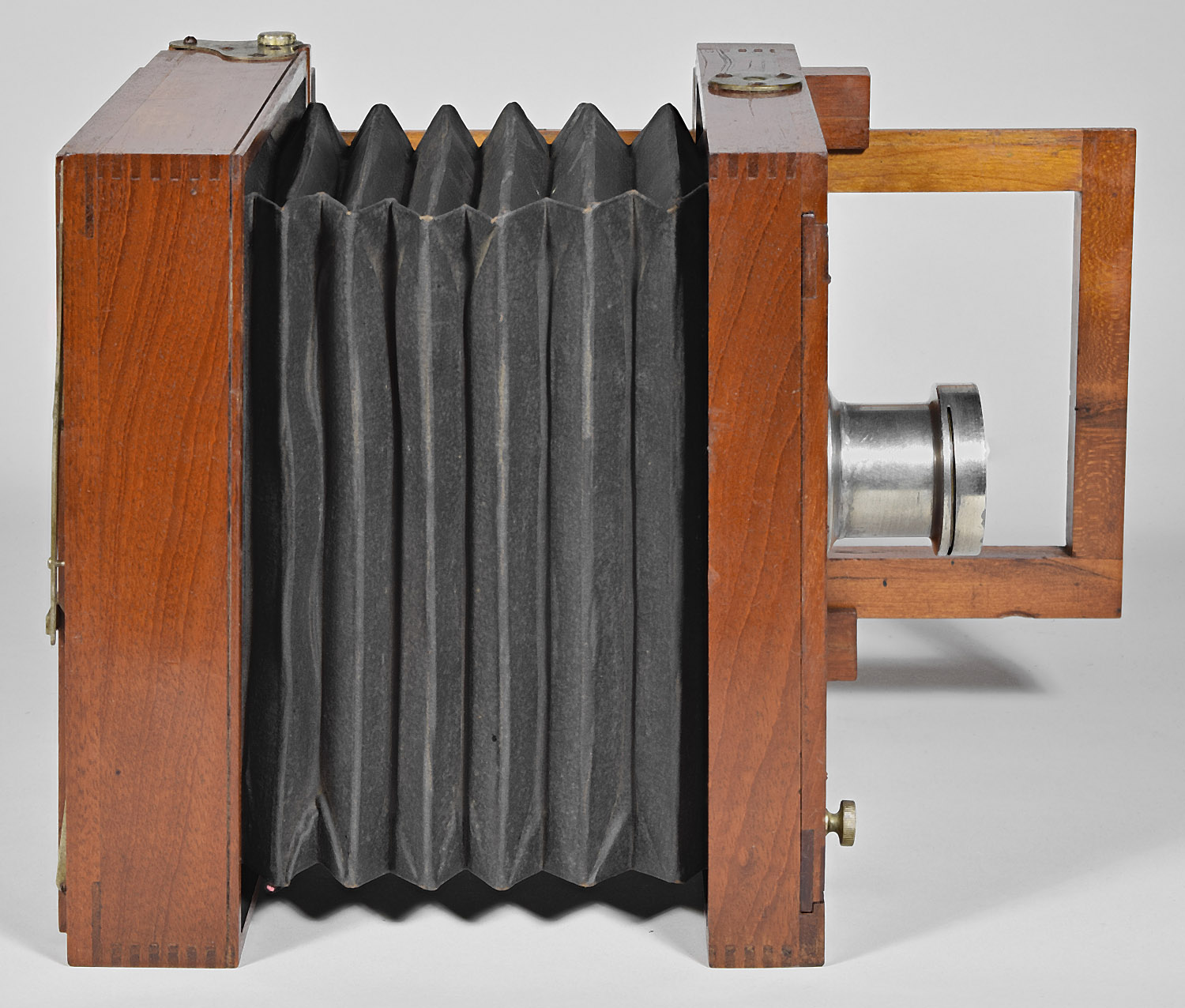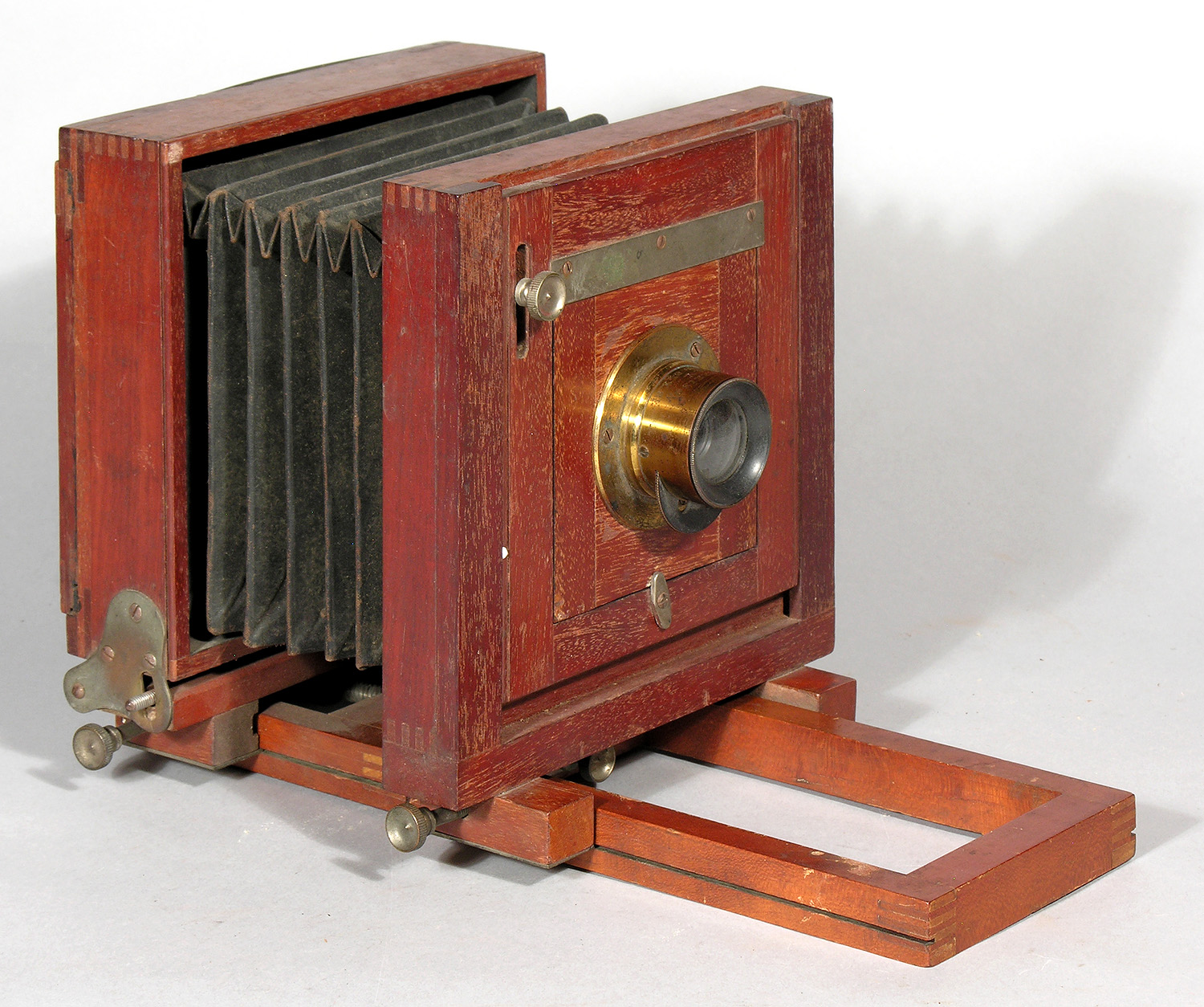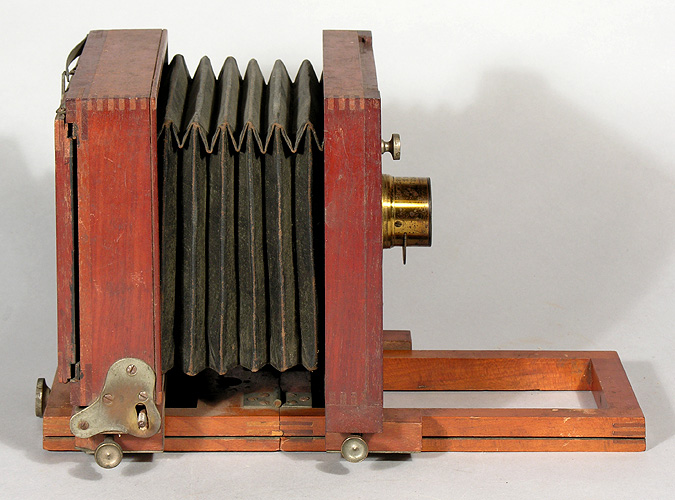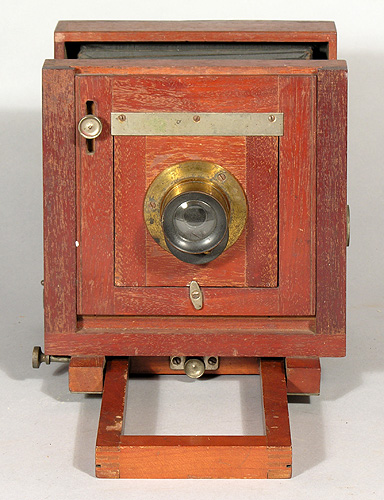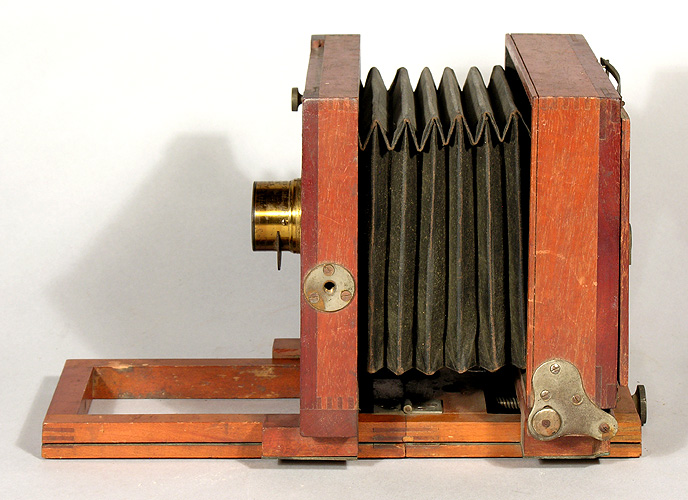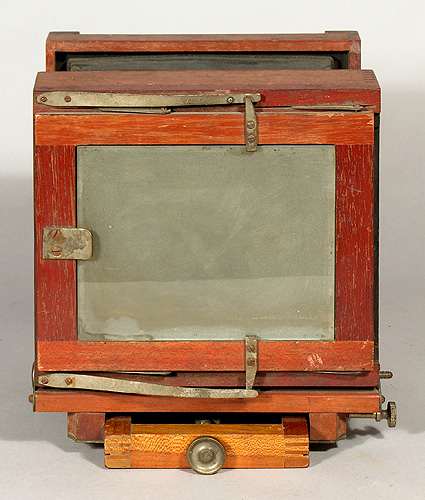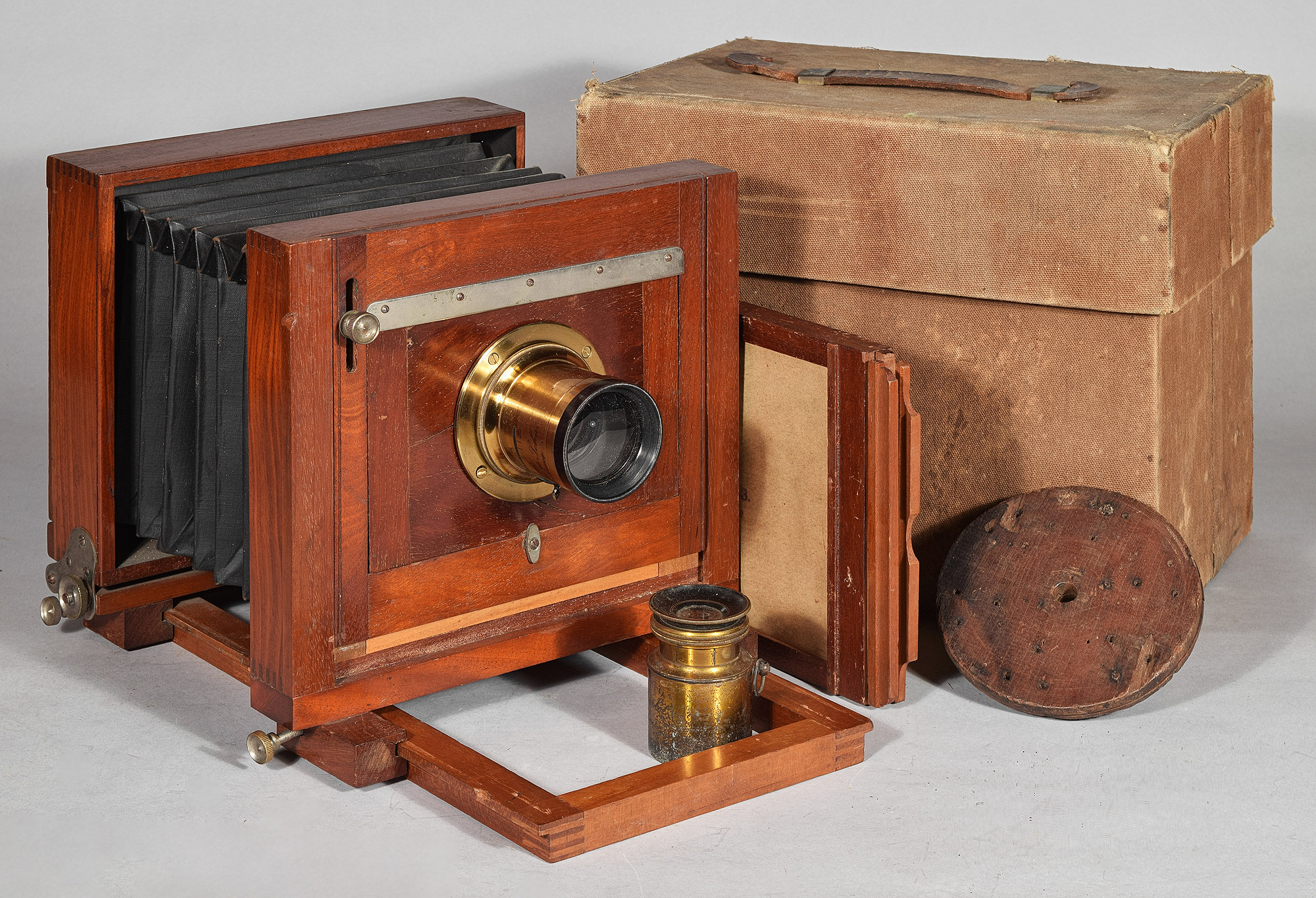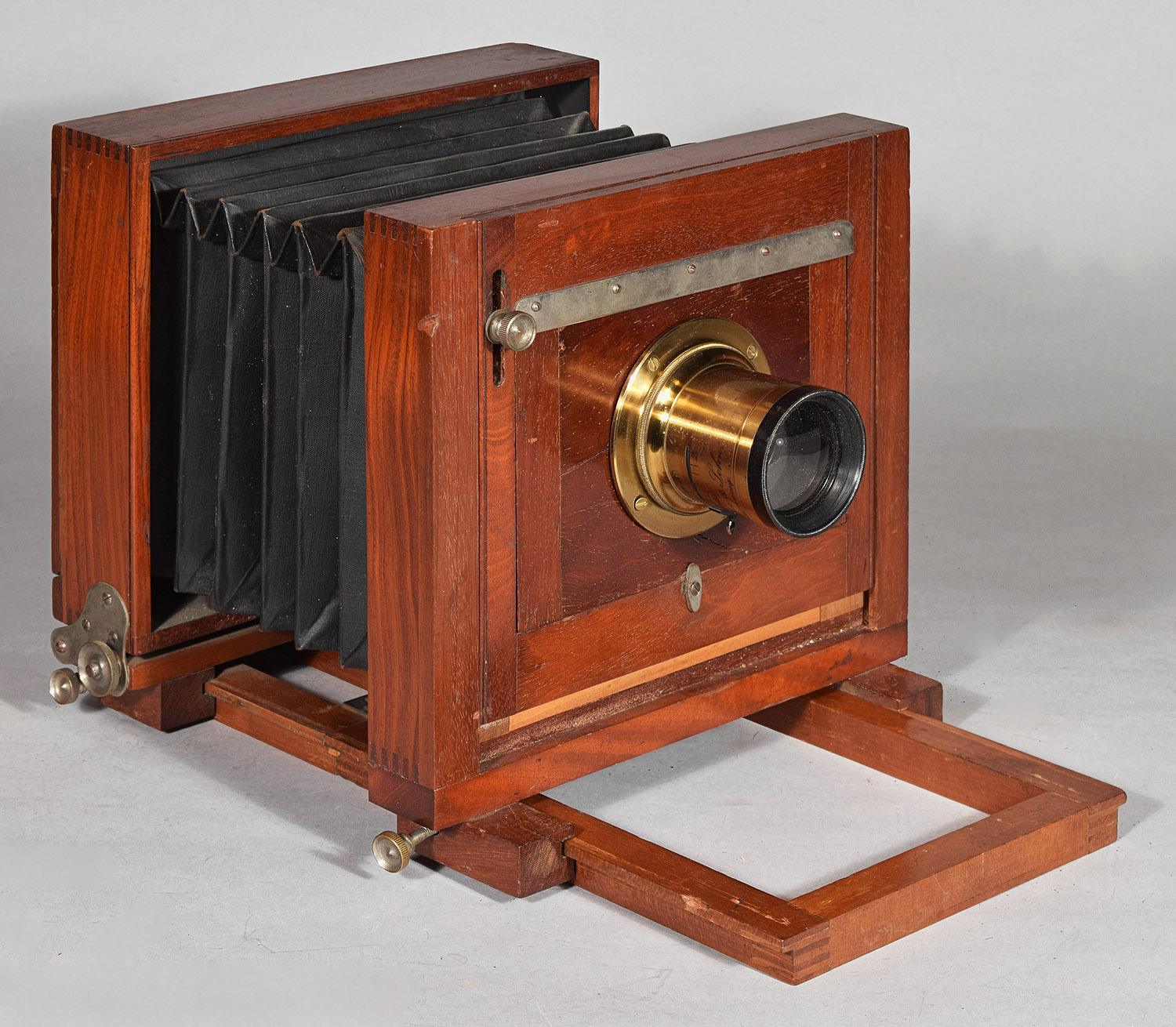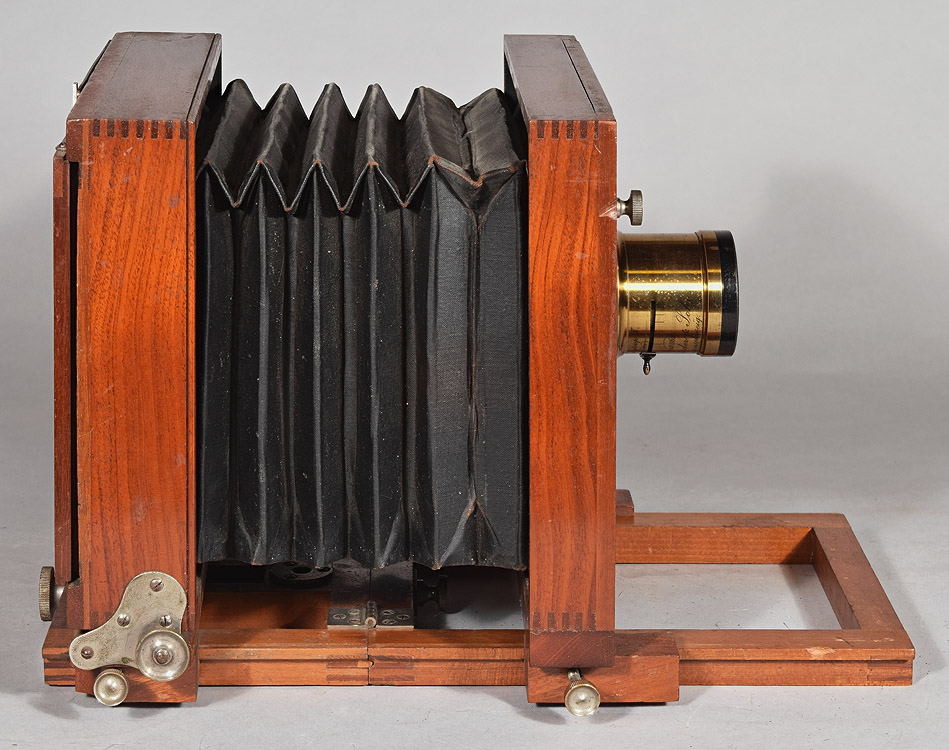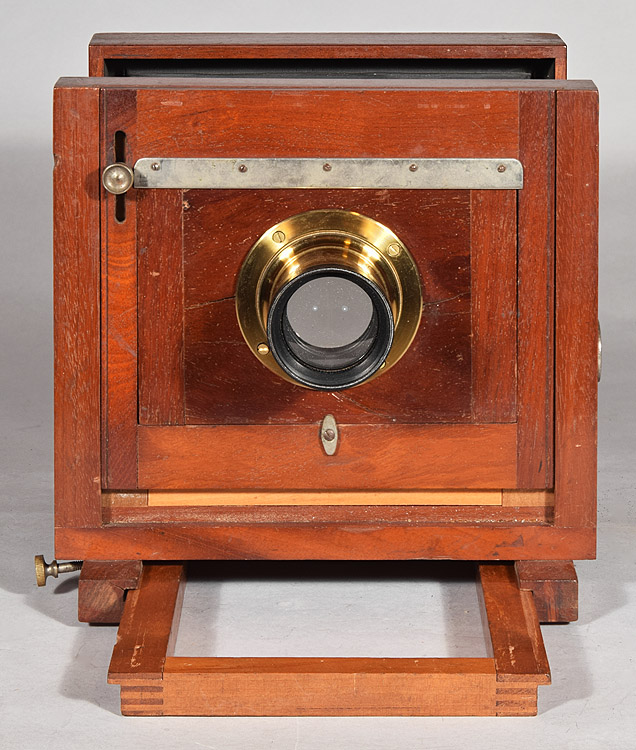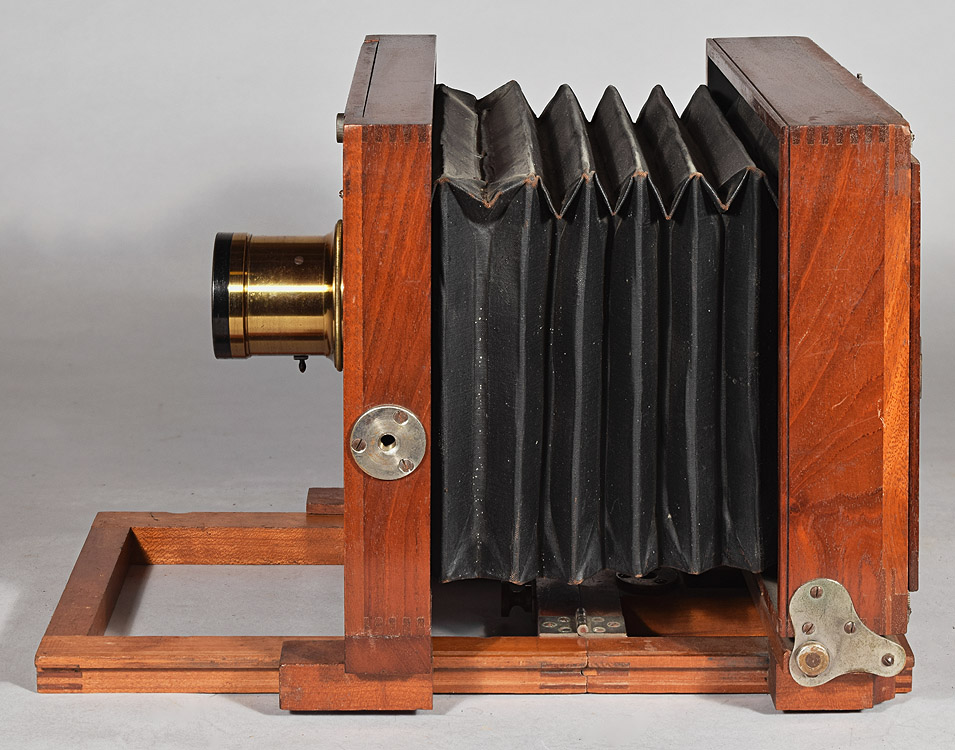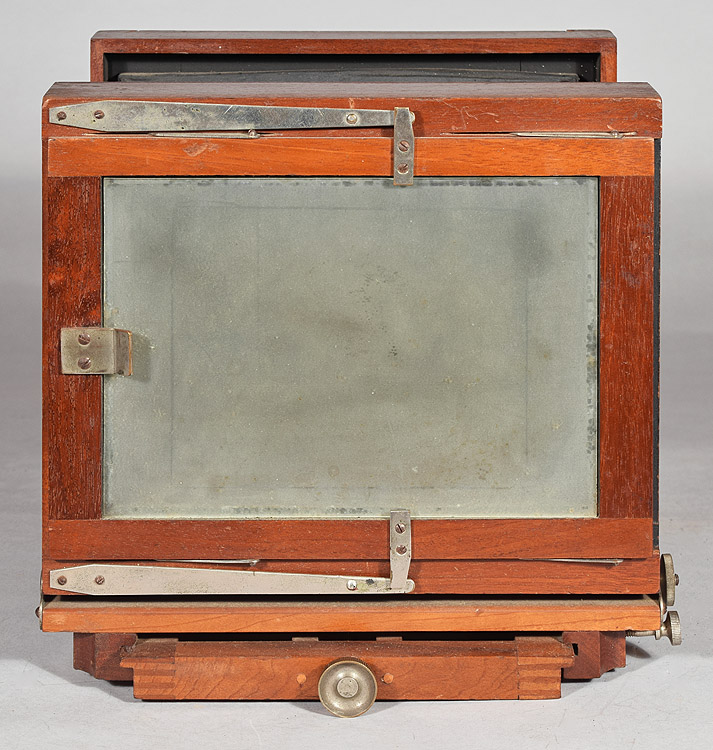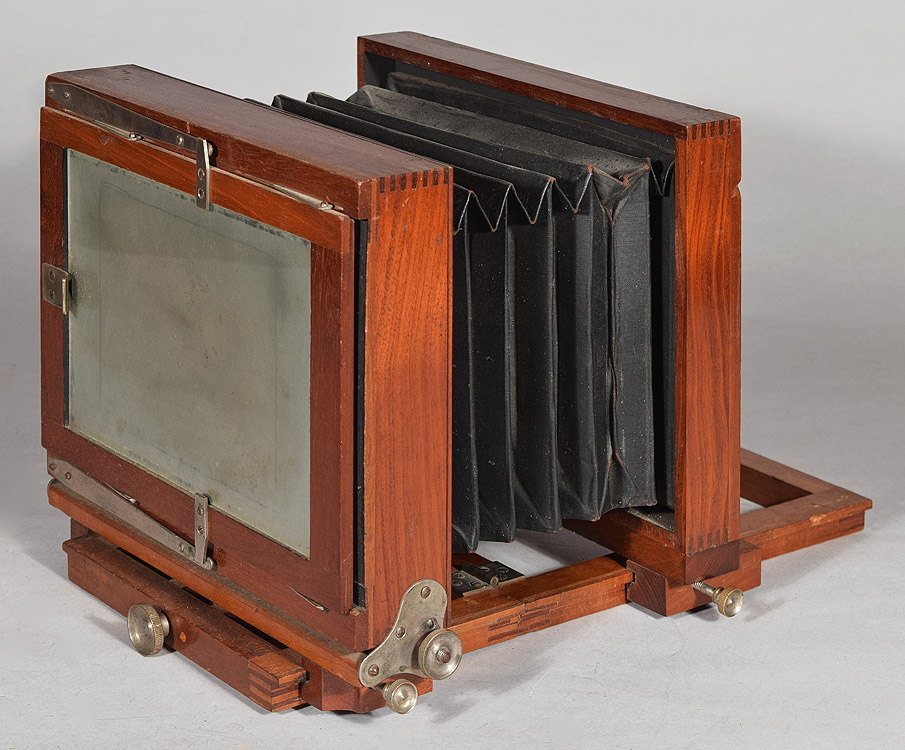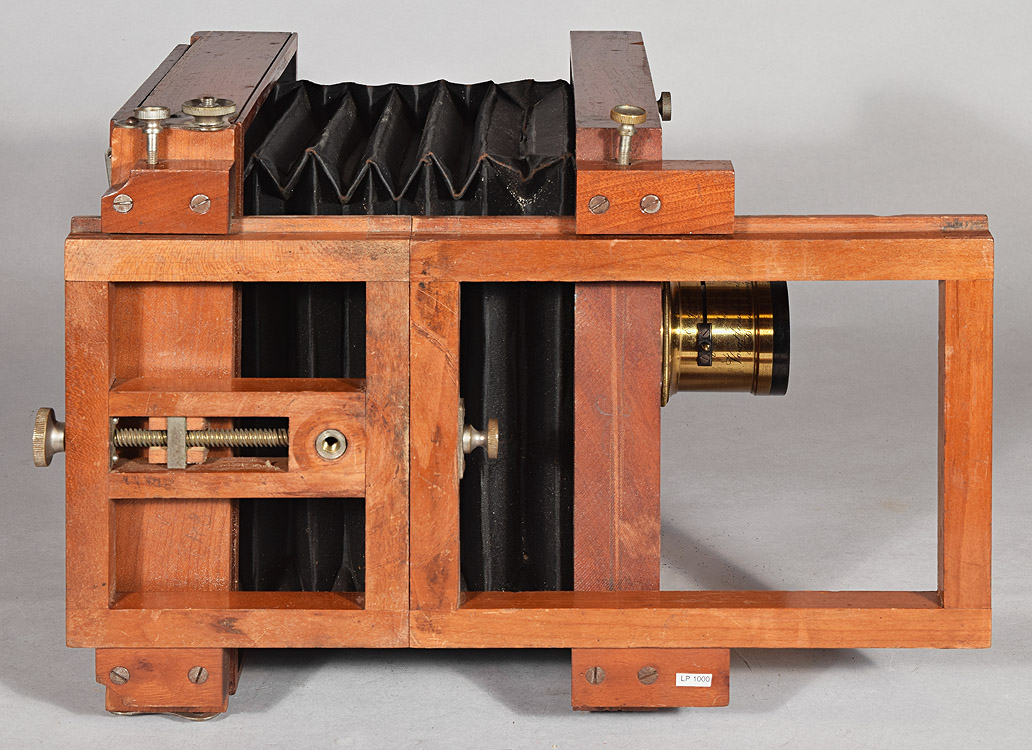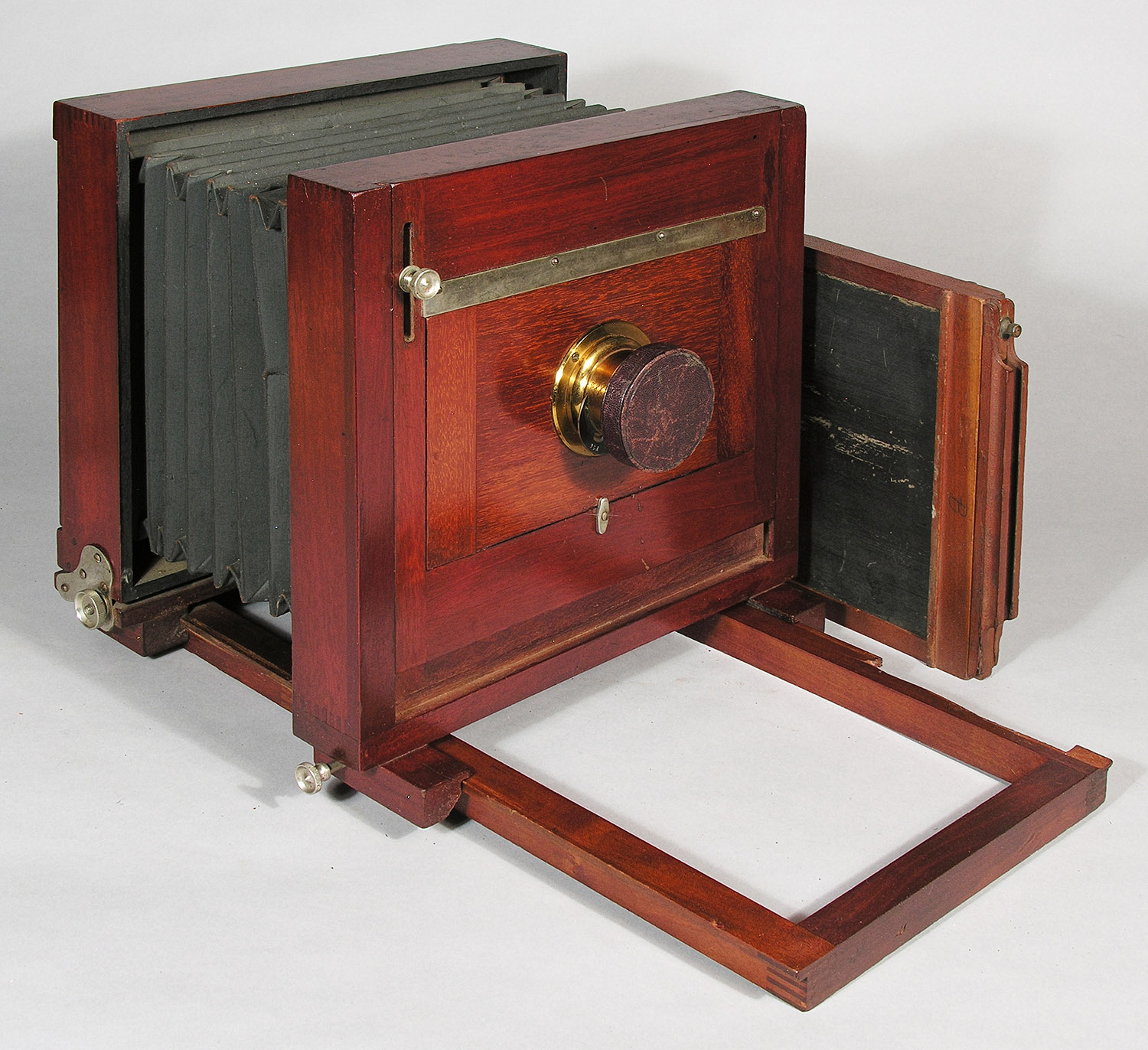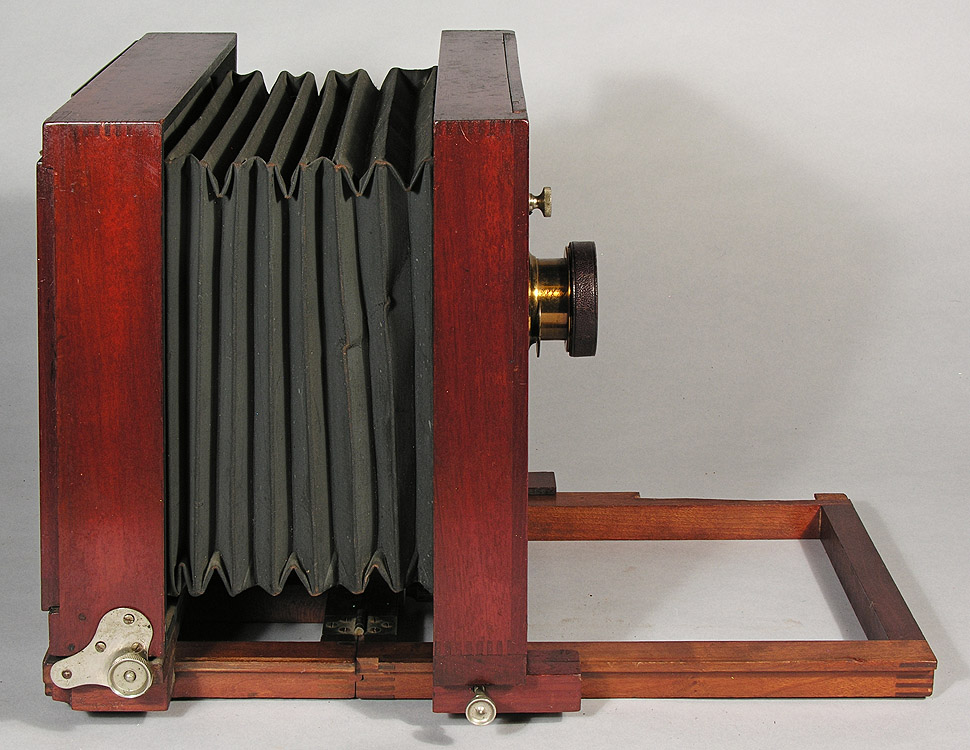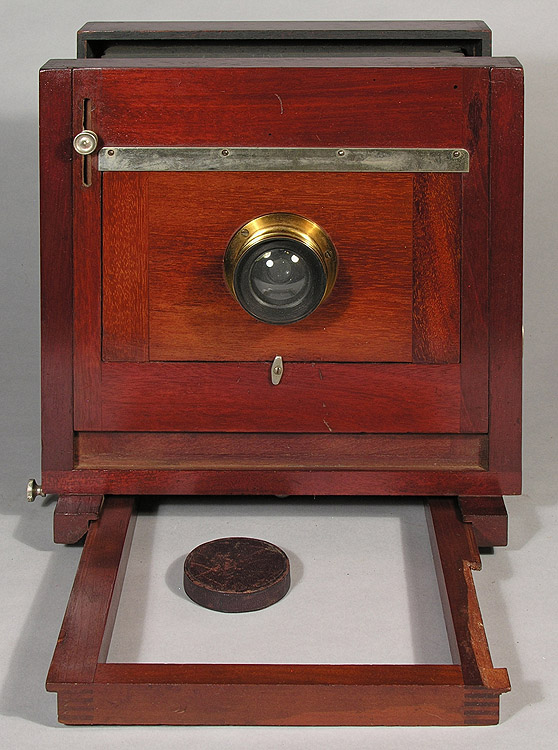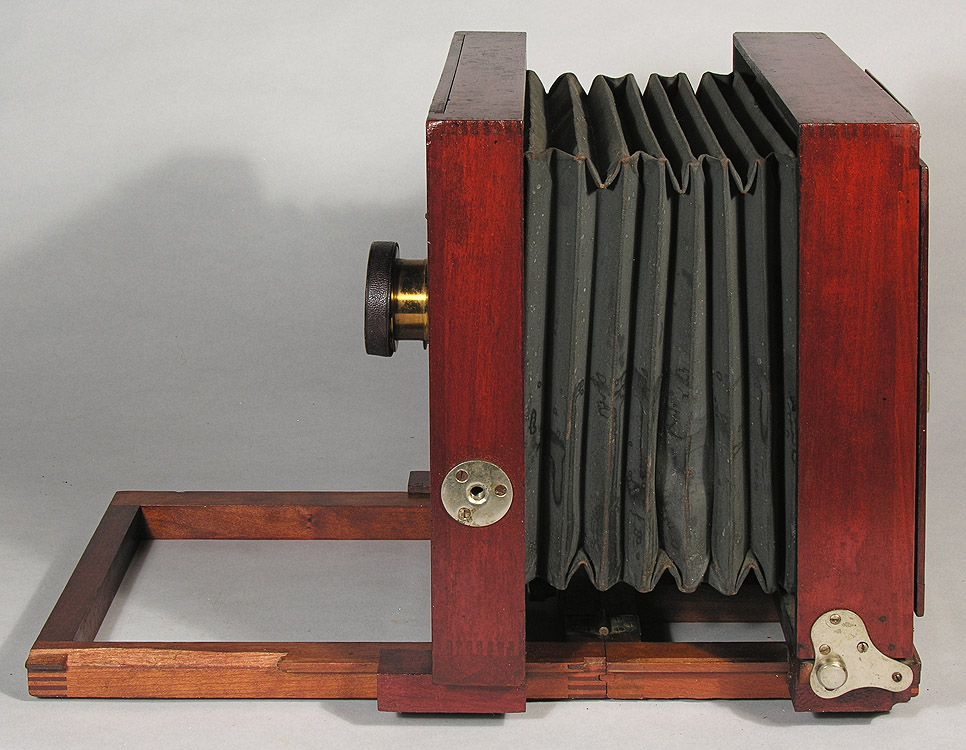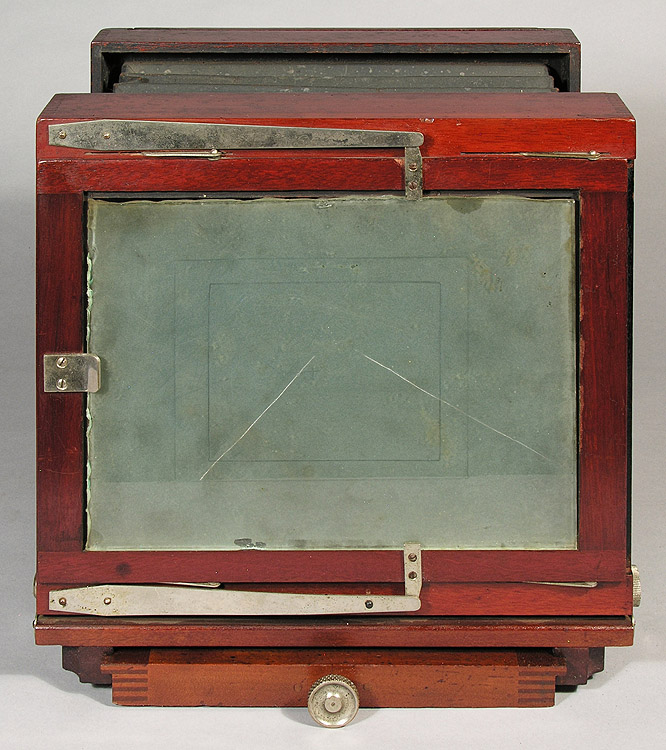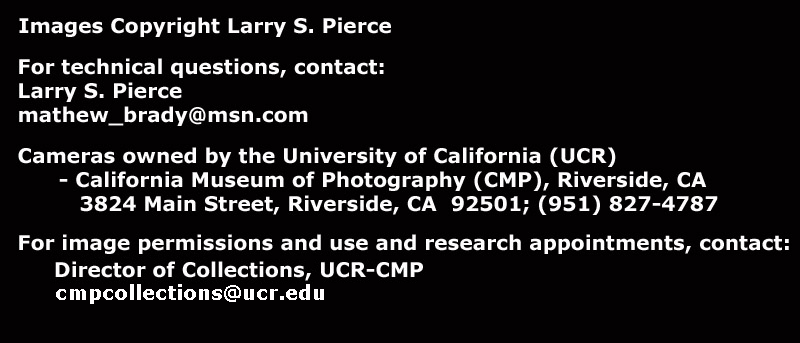Blair Camera Co.
Blair's Utility Camera Variation 1 (Rear Focus Screw)
Untitled 8p. Catalog, The Blair Tourograph & Dry Plate Company, Boston,
MA, undated, c.1884, un-numbered pages but appears to be p. 4
5 x 7"
This example has a different style of spring back and also a different
style of thumbscrews that the other examples of the Utility Camera here
- it may be a later era version.
Blair
Drop Shutter
Date Introduced: - ;
Years Manufactured: c.1884
- ? The identification and description of the Blair
Utility Camera should be relatively straightforward, given that it
is advertised in Photographic Apparatus Manufactured by the
Blair Tourograph & Dry Plate Co., 1884, p. 11-12.
However, the identification of Blair camera models is seldom
straightforward, and this one is less straightforward than most.
The usual problem with Blair cameras is that
changes and improvements were apparently constant, which tends to give
one the impression sometimes that no two Blair cameras are ever exactly
the same. And this is indeed the case with the Utility Camera. In these web pages, the Utility is split
into two Blair variations and a variation made by L.M. Prince & Bro. of
Cincinnati, Ohio:
Blair's
Utility Camera Variation 1 is as described in the 1884 catalog,
having with a rear standard that can be moved only slightly by a focus
screw on the rear of the camera. Rather than having a hinged back,
like the catalog engraving, these are usually found with a spring back
of a type found on known Blair products (e.g., the
Blair
Roller Blind Shutter). In addition, Utility Cameras appear
to all have a single swing. Any unmarked camera of this general
description having a Blair-type spring back is assumed to have been sold
by Blair, rather than L.M. Prince & Bros. - see below.
Blair's
Utility Camera Variation 2 is not to be seen in any catalogs,
and has no label or stamp indicating the maker. It differs from
other Utility models by having been manufactured without a rear
focus screw. In fact, its rear standard is as fully movable as the
front standard. Its spring back is identical to that usually found
on the Blair's Utility Variation 1, and also fits only Blair
plate holders, so it is assumed to be a Blair product. Since it is
less work / less expensive to make a camera without a focus screw, and
the general trend over time for most camera models is toward a less
expensive construction, it is further assumed that Variation 1 is
the earlier version.
Prince's
Improved Utility Camera is a camera similar or identical to the
1884
Blair's Utility Camera that was advertised at least in
Illustrated Catalogue No. 18, L.M. Prince &
Bros. (Cincinnati, OH), c. 1899, p. 37.
L. M. Prince & Bros., at one time, carried the Blair line (see
Scovill's Photo. Series No. 22, Photographic Printing Methods,
Rev. W. H. Burbank, Scovill Mfg. Co. (New York, NY), 1887, ads page 19).
Cameras having a Prince Label and therefore known to be Prince have a
hinged back fastened with an ROC-type clasp. An unmarked Utility
camera having such a hinged back and ROC clasp is assumed to be a Prince
camera, rather than Blair (see above). The 1899 Prince catalog
used the exact same engraving as was used in the 1884 Blair catalog.
The implication is that Prince & Bros. bought cameras from Blair and
labeled them as their own. Strangely, Blair catalogs between 1884
and 1899 do not advertise the Utility Camera, so was the
Utility Camera resurrected in 1899 for Prince & Bros. after years of
not being made? The one example of a known and labeled Prince &
Bros. Improved Utility Camera has a base rail with an L-shaped
profile instead of the tongue-in-groove-shaped profile of the engraving
(as do others that are assumed to have been sold by Blair).
Additionally, the ground glass frame of the labeled Prince Utility
has a Rochester Optical-type rotary clasp, and fits Rochester Optical
plate holders. The fact that Prince & Bros. still called it
a Utility Camera implies that the Blair company was still the
manufacturer. If Prince was merely making a copy of the unpatented
Blair design, they would hardly call attention to it by using the same
name. For identification purposes: References:
Yet Another 5 x 7. The
wooden carrying case is stamped: "Rochester Optical Co.", and is
obviously not an original Blair case. The original case would have
been canvas, as in two examples above. The lens board is not
original, either. The lens is an ROC single achromat.
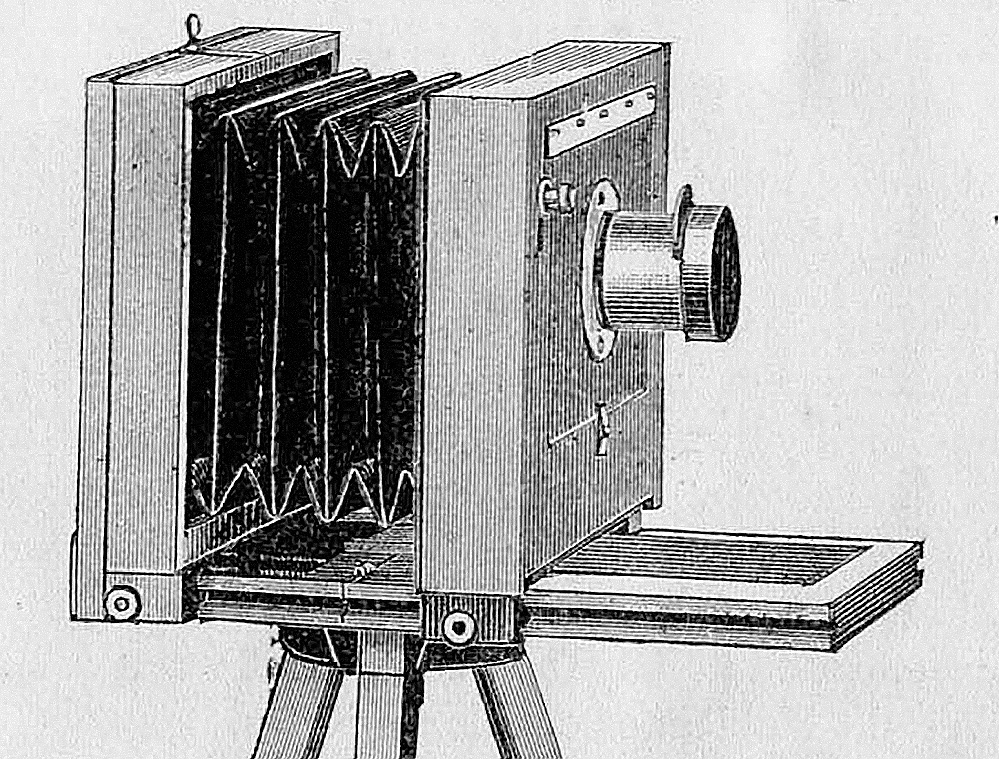
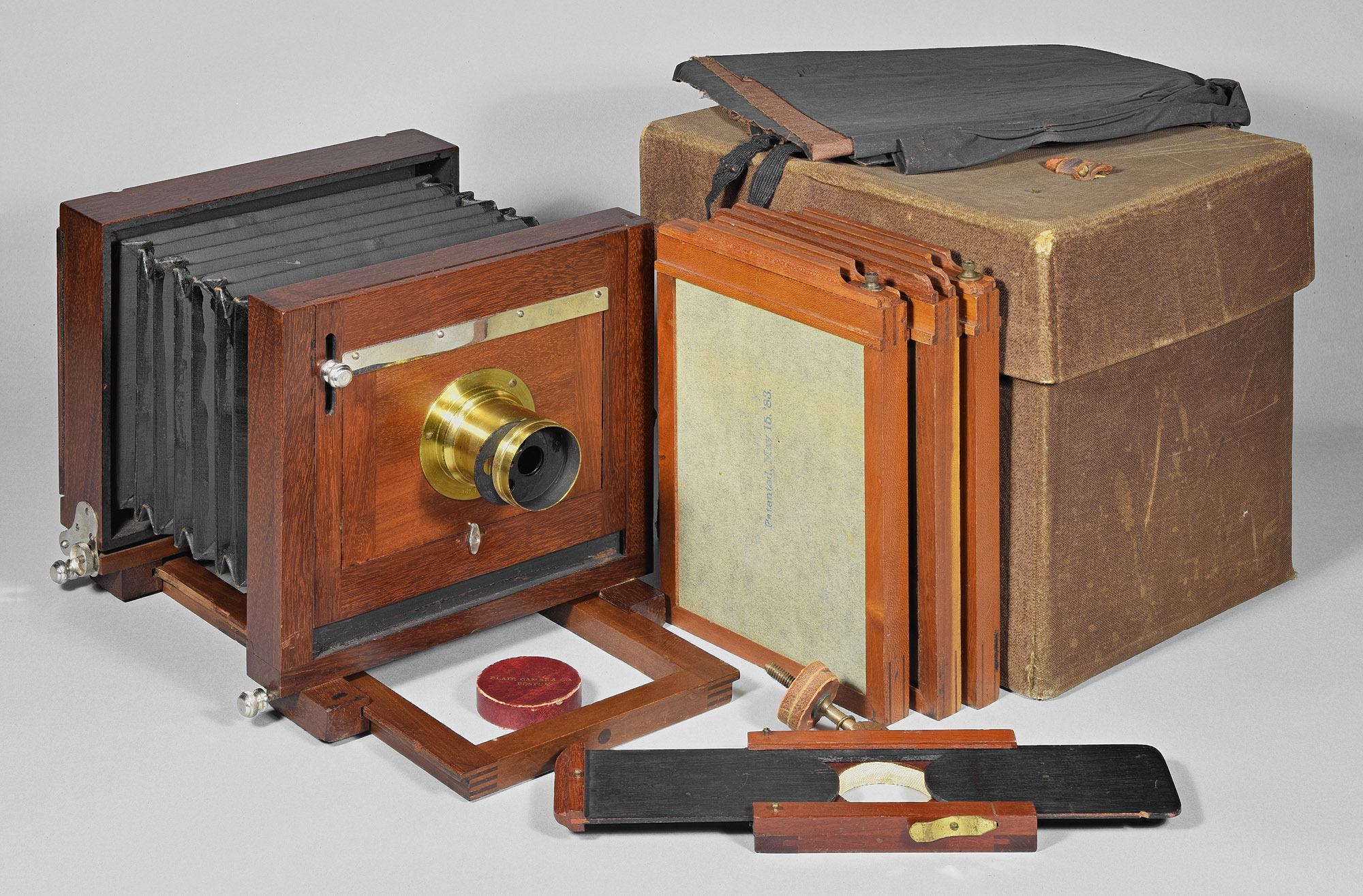
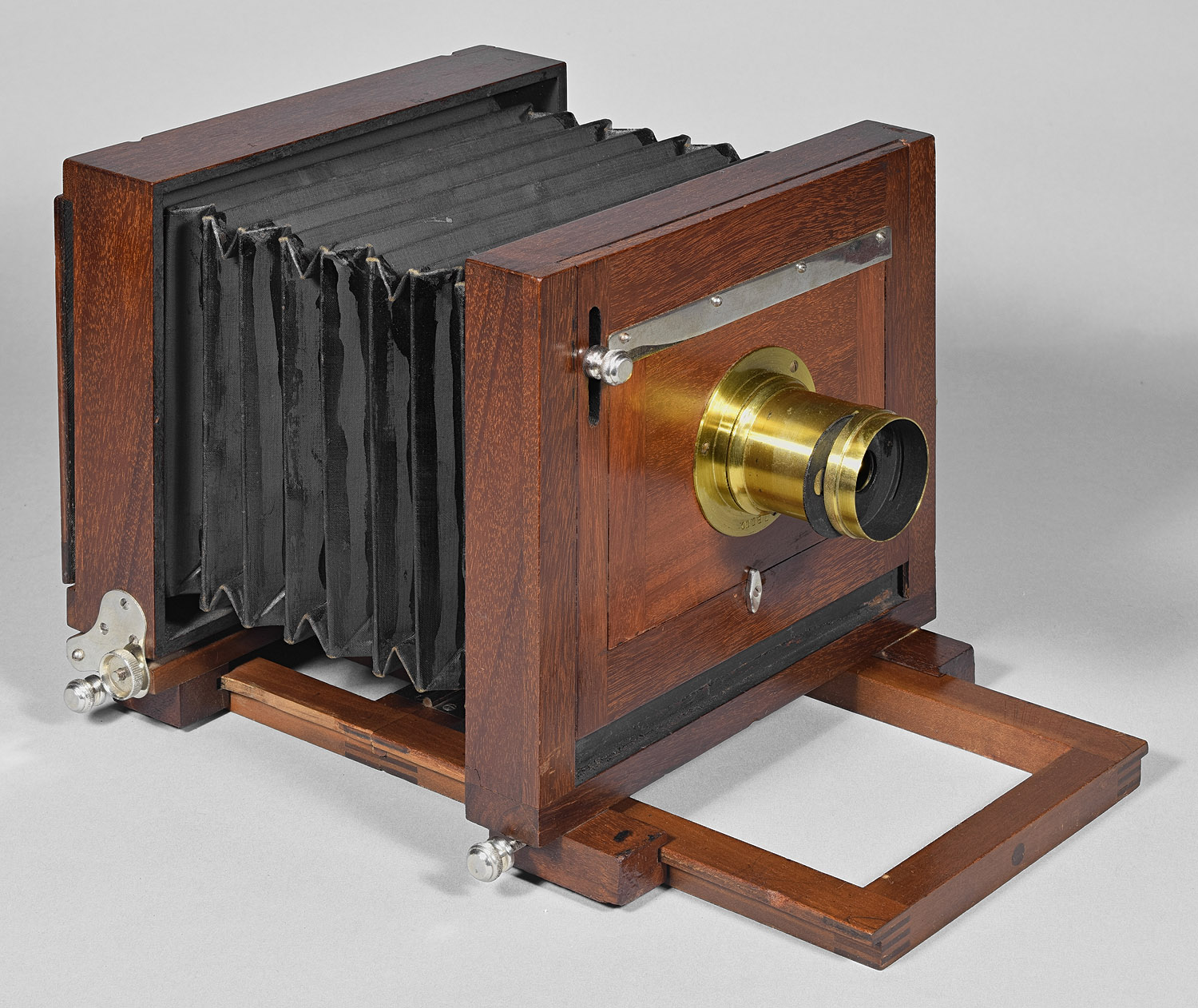
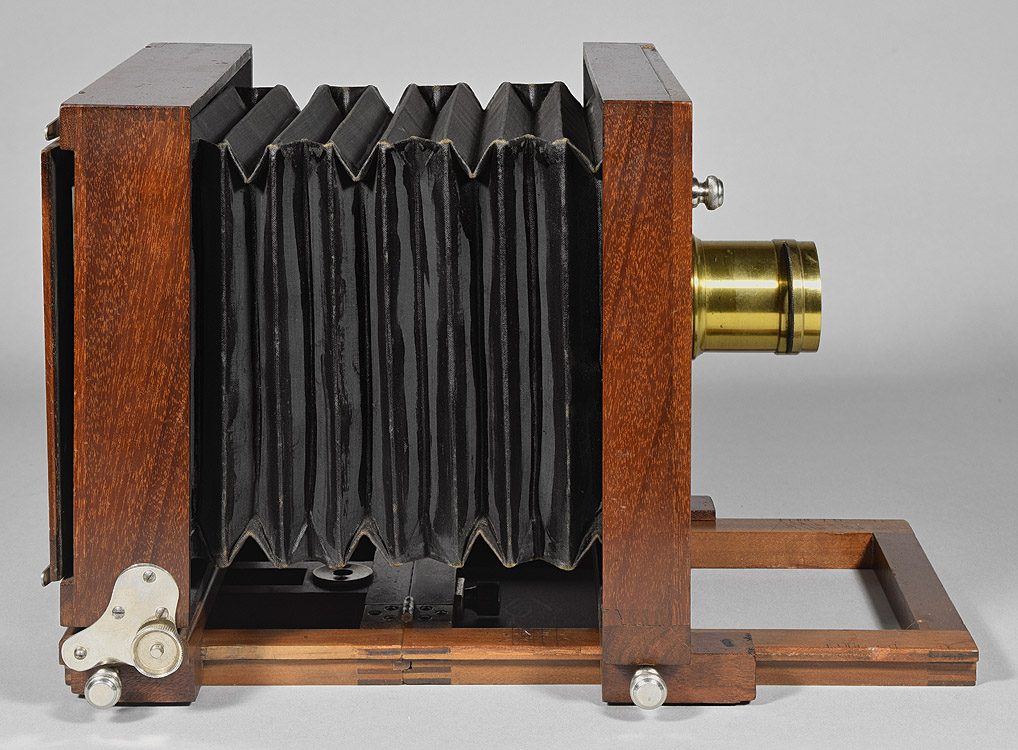
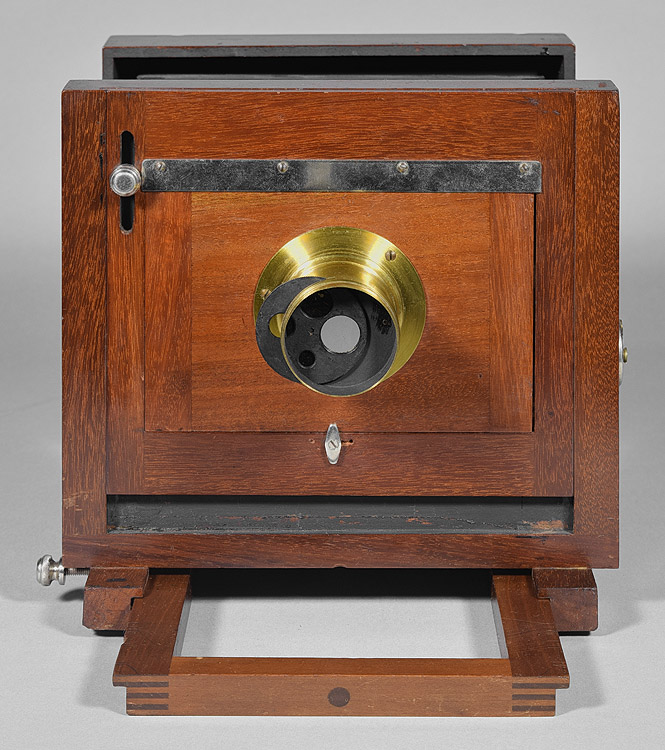
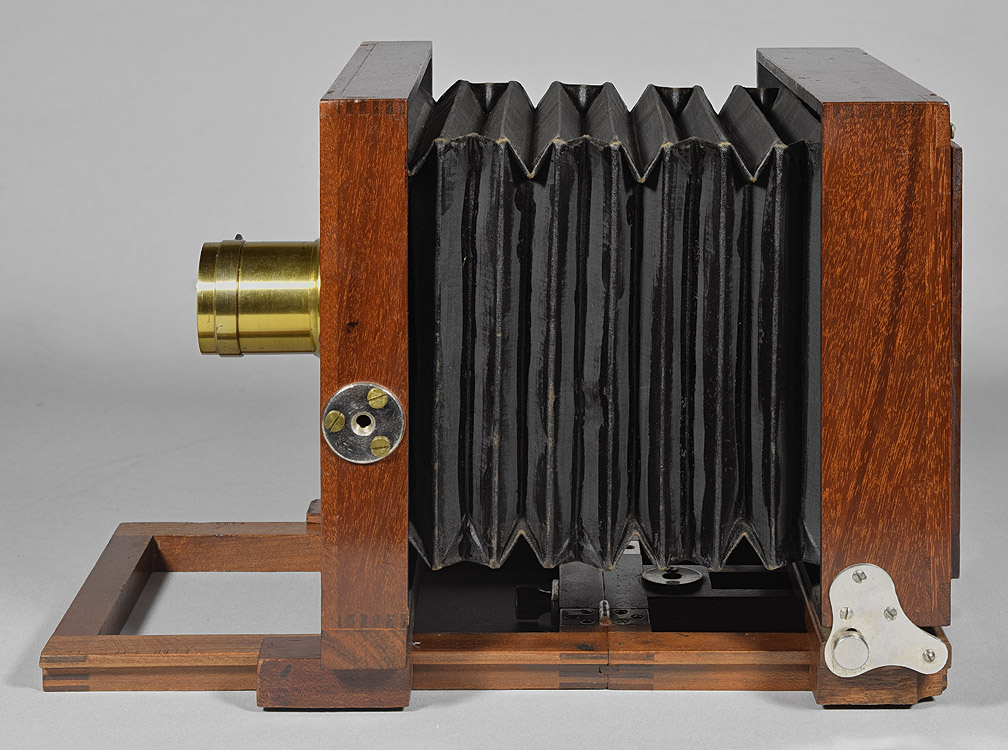
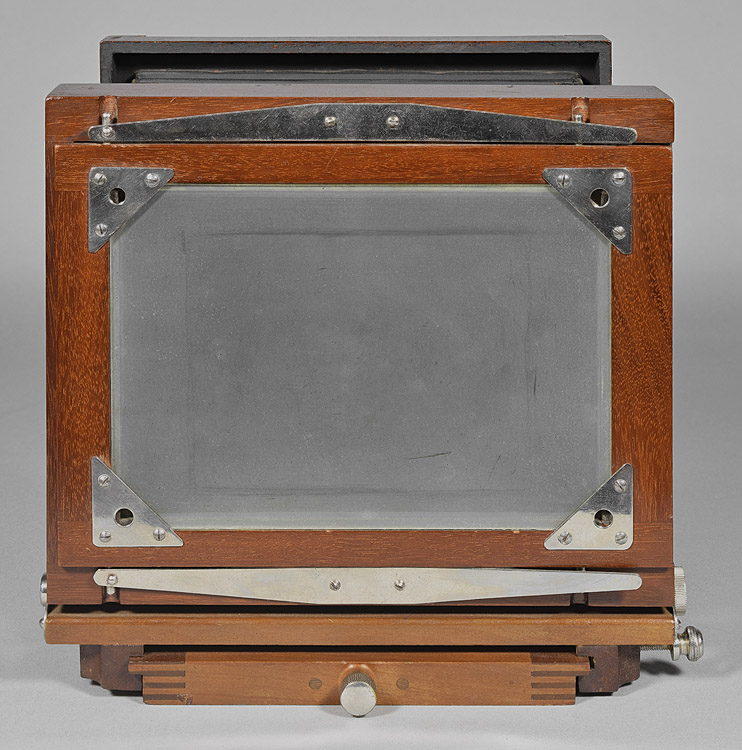
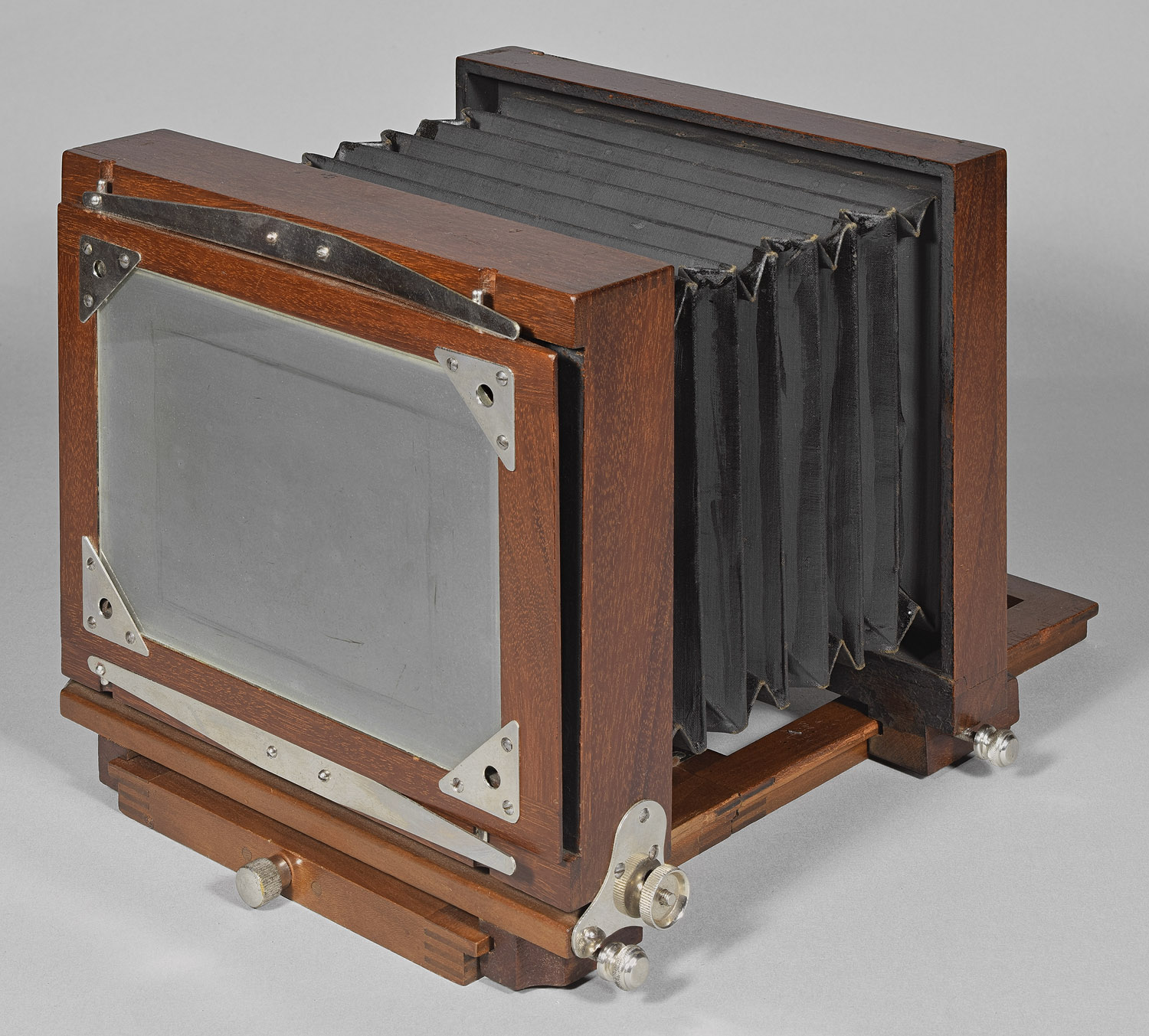
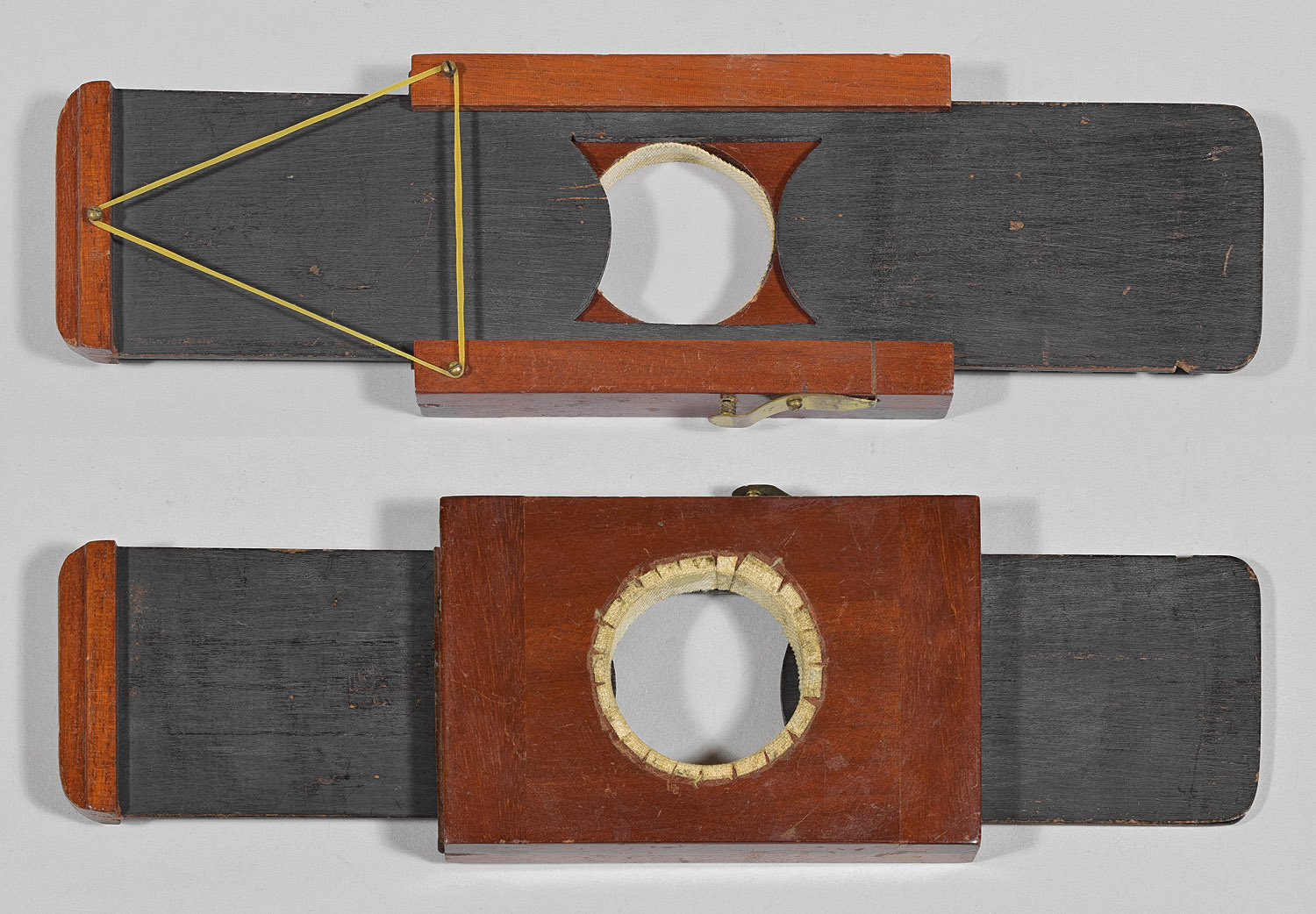
Construction: front focus
via push-pull, and limited rear focus via
focusing screw, three-piece lens board, reversible by second tripod
mount
Materials: polished cherry, nickel plated
hardware
Sizes Offered: 4x5; 5x7;
5x8; 6½x8½
Notes:
- Any camera which has a Rochester Optical-type clasp and fitting
Rochester Optical plate holders is assumed to have been sold by L.M.
Prince & Bros.
- Any camera which has a Blair-type spring back fitting Blair plate
holders is assumed to have been sold by Blair.
Untitled 8p. Catalog, The Blair Tourograph & Dry Plate Company, Boston,
MA, undated, c.1884, un-numbered pages but appears to be p. 4
Blair Tourograph & Dry Plate Co. Catalog, 1884, p. 11-12
